5 Foods to Eat Weekly to Support Gut Health
Healing is a funny word as we think of it as something that only needs to be done once and it’s over with. We’re reminded of scraping our knee on the playground as a kid and the school nurse reassuring us that it would heal up, which it always would and we would go on with our lives. Healing seems simple on a surface level. However, it’s not always that easy. The wounds can often be deeper, easily irritated and entirely more complex than we realize.
Healing our gut is a complex task that varies from person to person. The causes vary, the time needed to make progress and the exact course of action varies.
However, what I firmly believe is constant for all of us on a gut healing journey is that a certain level of maintenance is required.
Regardless of how good of a job we do at our initial gut healing in the first place, there are still obstacles thrown in our way constantly. Whether it be cross-contamination in a restaurant or at the party that leaves us wondering what happened, a round of antibiotics that throws off the balance of our gut bacteria, or a particularly stressful week that throw off our digestion… our gut health will never be perfect nor will our environment.
Though I’m super thrilled to be able to enjoy reintroductions like egg yolks, chocolate, rice, almonds, and coffee that once killed my digestion, I still see the need to support my gut health weekly and encourage my nutritional therapy clients to do the same.
So, what are 5 things that we can all weekly to help maintain our gut health?
1. Bone Broth
Everyones favorite, right? We hear about bone broth from all of our favorite internet paleo folks… including myself. But why is bone broth so great?
- Bone broth contains collagen that strengthens and heals the intestinal lining.
- It’s a nutrient dense source of amino acids, vitamins and minerals that are easily digested and promote health and vitality.
- It’s a traditional healing food rather than a quick fix pill.
Though there are tons of pre-made bone broths on the market, and convenience can be helpful at times, I highly recommend making your own when possible.
I have a recipe for easy, healing bone broth, here.
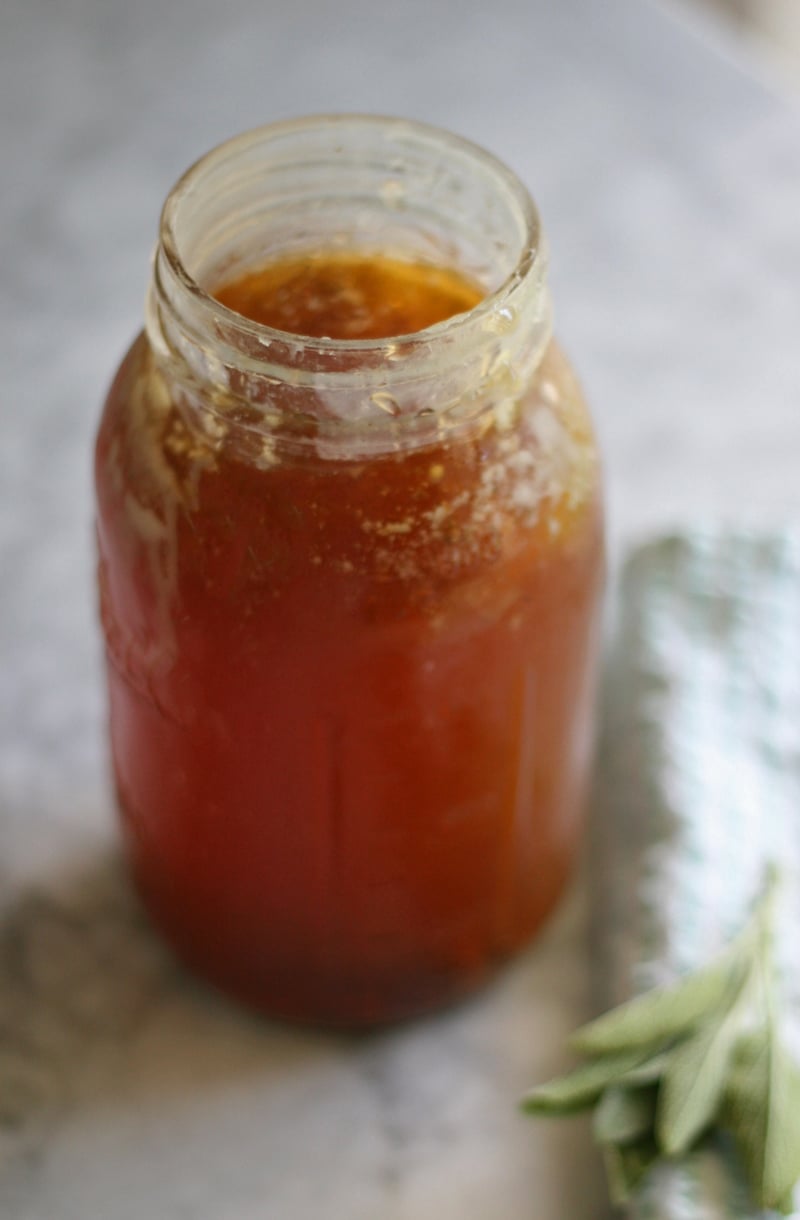
I recommend having at least having broth weekly. Ideally, I like to tell my clients to make one large pot of broth over the weekend and drink/eat it throughout the week.
Though I love having a warm mug of broth at breakfast, it’s not everyones style. I also recommend having broth in a stew, pot roast, or even using it to cook rice (if reintroduced) or other dishes.
2. Pasture Raised Liver
Liver is a powerful superfood that’s incredibly nutrient dense, and gives the body the nutrients that it needs to thrive and heal. Liver is packed with Vitamin D, A, B12, folic acid, zinc, and other essential nutrients. Believe it or not, it’s far more healthful than regular muscle meat as seen here in this post by Chris Kresser. These are the nutrients that we need to heal and to be healthy, and they can all be found in liver!
When buying liver, it’s just as important as ever to go grass-fed and pasture raised. Why? Conventional meat is not only inhumane, but it’s incredibly inflammatory. Animals health suffer from poor quality diets which makes the quality of the meat suffer. Always look for pasture raised chicken liver, and grass-fed beef liver.
Funny story, I literally cried the first time I had liver I hated it so much. I was so, so over it before I had even started. So, how do you make the darned thing taste good and get rid of the off putting texture? Pate!
I recommend this particular pate recipe for beef pate, and this one for chicken. I love having pate with oven baked plantains, apples, and carrots!
3. Fermented foods
Though we’re only starting to scratch the surface on our understanding of the gut microbiome, it’s incredibly important.
The bacteria in our gut affect our health in a myriad of ways, such as:
- Protect us from pathogens
- Affect the integrity of our gut lining
- Help strengthen our immunity
- Boost our digestive fire
- Contribute to our health and wellbeing as a whole
Before refrigeration, our ancestors fermented foods to keep them fresh. According to Weston A. Price, nearly every society had some sort of fermented food from sauerkraut, to kimchi, even to fermented cow blood (actually, no thanks… not cute).
But really, fermented foods have been a part of our diets for centuries and are an incredibly effective way to support healthy gut bacteria.
Sauerkraut, kimchi, and home fermented veggies are a great option. One of my personal favorites it beet kvass which I have in my fridge every week!
4. Tons of veggies.
There really is no replacement for just good ol’ vegetables. No pill, supplement, nothing.
When I was studying nutrition in college, I knew a lot of people who were just taking supplements, going to eat fast food and calling it a day on their health. We’re made to believe that we can get all of the essential nutrients through supplementation, however, when it comes to fruit and vegetables, we’re missing the whole food form and the phytonutrients which are present in only the whole food form.
Fresh vegetables are, again, a traditional and necessary part of a healing diet and have essential vitamins and phytonutrients needed to support health and vitality.
Though many of my clients (including myself) may have issues with certain vegetables like nightshades, FODMAPS, etc., it’s important to find veggies that work for your diet, and have them daily.
5. Ghee
Now, this one may be controversial, as it certainly is not for everyone, but I’m okay with that. Ghee is an incredibly traditional healing food and is seen as therapeutic in ayurvedic medicine.
Ghee is clarified butter, or butter that’s free of the milk solids that are what carry the lactose and casein. That means that’s it’s free of the allergens that most often cause problems for people.
Similar to liver, ghee is high in vitamin A, D, and K and is in a bioavailable form. These vitamins are crucial for health and healing, and if you have gut issues, you likely have problems absorbing these vitamins, especially vitamin A. Ghee is an easy way to absorb vitamin A regardless of gut issues.
Ghee has also been shown to support healthy gut flora, and balance the immune system which only helps gut healing more.
So, how do you use ghee? Um, how do you not use ghee? I use it on sweet potatoes, plantains, and just about everything else in between!
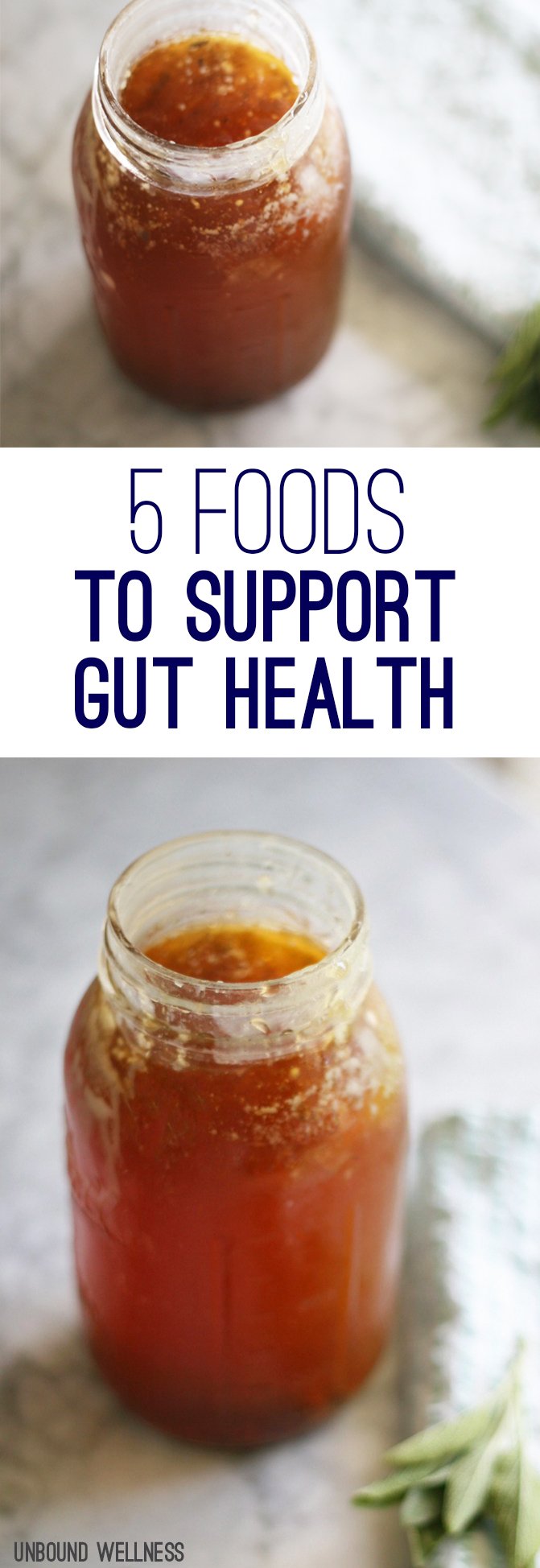

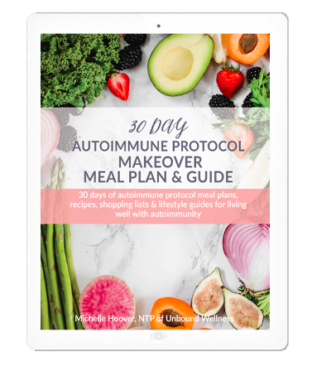
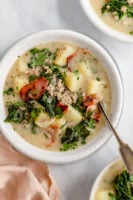

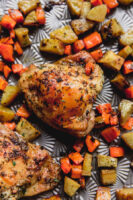
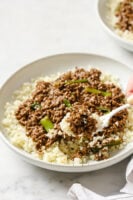
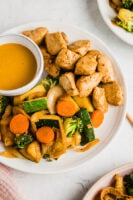
I saw your one pot unstuffed cabbage roll recipe and have the ingredients already on my shopping list. Because I am a widow who lives alone I am wondering if this dish freezes well in smaller portions. Thank you.
Hi Eileen! I haven’t tried to freeze it myself, but I assume it would hold up pretty well. Let me know if you try it!